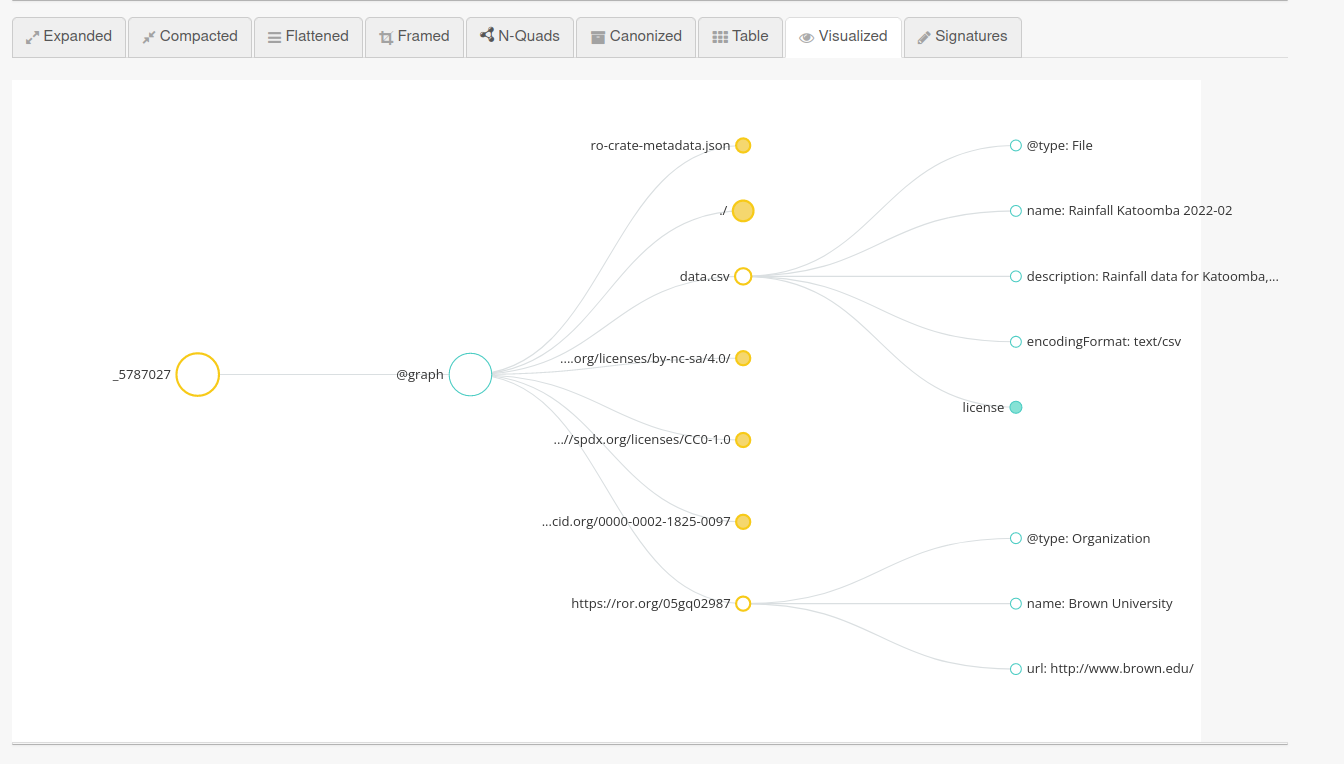Validating JSON-LD
Overview
Teaching: 2 min
Exercises: 4 minQuestions
How can I validate the JSON-LD?
Objectives
Learn to avoid common JSON and JSON-LD errors
Try the JSON-LD Playground with RO-Crate metadata
Visualize the RO-Crate entities
Validating JSON-LD
As we made this RO-Crate Metadata File by hand, it’s good to check for any JSON errors, such as missing/extra , or unclosed " quotes. Try pasting the file content into the JSON-LD Playground. It should show up any errors, for example:
JSON markup - SyntaxError: JSON.parse: expected `','` or `']'` after array element
at line 29 column 5 of the JSON data
Modify the JSON file in your editor to fix any such errors. You can also use editor commands such as Format Document to ensure you have consistent spacing, indentation and brackets.
If the document passes without errors in the JSON-LD Playground, you should see output under Expanded looking something like:
[
{
"@id": "ro-crate-metadata.json",
"@type": [
"http://schema.org/CreativeWork"
],
"http://schema.org/about": [
{
"@id": "./"
}
],
"http://purl.org/dc/terms/conformsTo": [
{
"@id": "https://w3id.org/ro/crate/1.1"
}
]
},
{
"@id": "./",
"@type": [
"http://schema.org/Dataset"
],
"…": "…"
}
]
This verbose listing of the JSON-LD shows how the @context has correctly expanded the keys, but is not particularly readable. Try the Visualized tab to see an interactive rendering of the entities:
Expanding the visualization
Click on the circles to expand or collapse the details of the graph’s different nodes.

As the RO-Crate Metadata Document is valid JSON-LD it is also possible to process it using Linked Data technologies such as triple stores and SPARQL queries. It is beyond the scope of this tutorial to explain this aspect fully, but interested readers should consider how to handle relative URI references. As an example, try the Table button and notice that the entities with relative identifiers are not included. This is because when converting to RDF you need absolute URIs which do not readily exist when a crate is stored on disk, we’ve not decided where the crate is to be published yet.
Key Points
RO-Crate metadata files are valid JSON-LD
The JSON-LD Playground can do basic validation and visualization
Further use of RO-Crate as Linked Data is possible, but may require handling of relative URI references